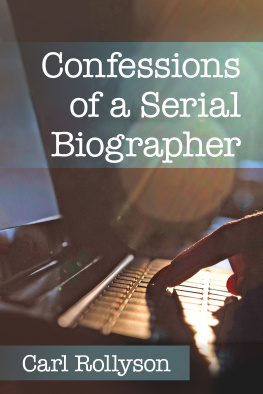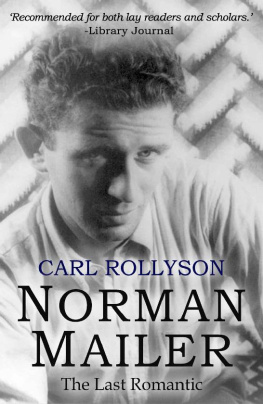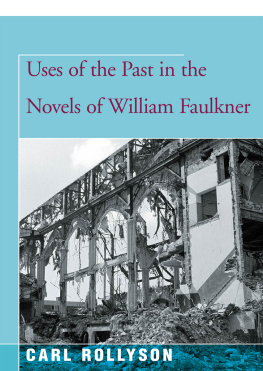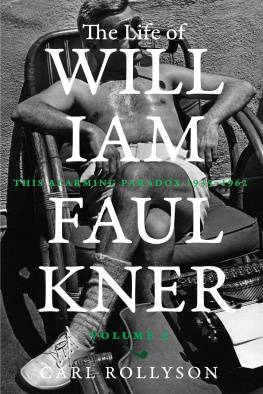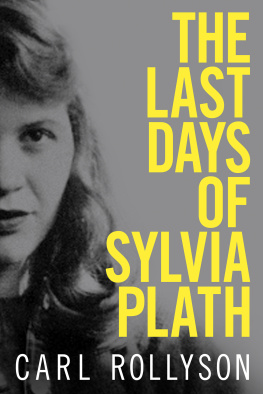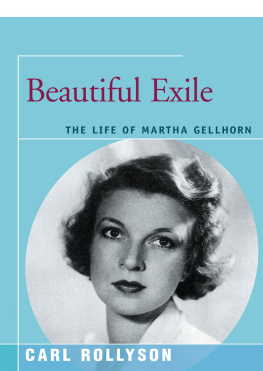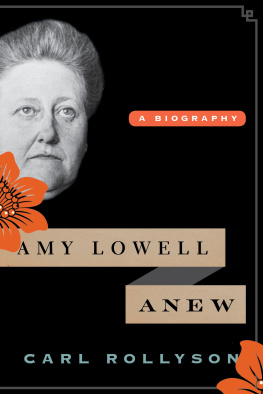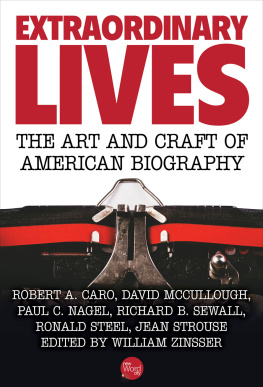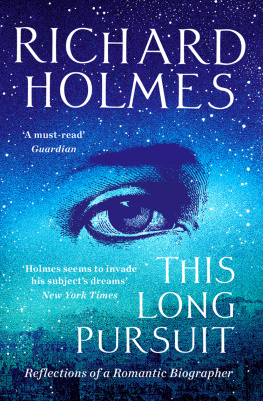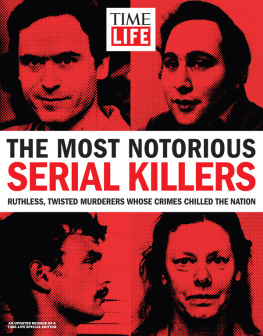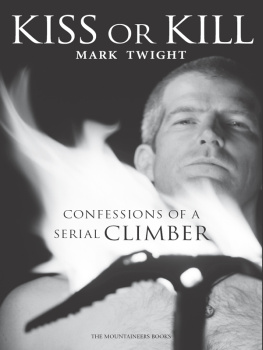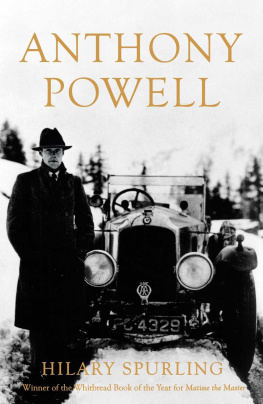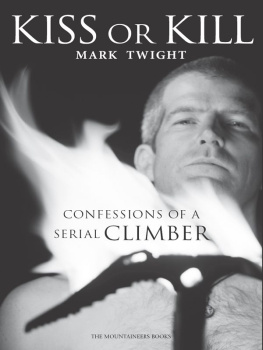
Confessions of a Serial Biographer
Carl Rollyson

McFarland & Company, Inc., Publishers
Jefferson, North Carolina
LIBRARY OF CONGRESS CATALOGUING DATA ARE AVAILABLE
e-ISBN: 978-1-4766-2541-6
BRITISH LIBRARY CATALOGUING DATA ARE AVAILABLE
2016 Carl Rollyson. All rights reserved
No part of this book may be reproduced or transmitted in any form or by any means, electronic or mechanical, including photocopying or recording, or by any information storage and retrieval system, without permission in writing from the publisher.
Front cover image of computer at night 2016 m-gucci/iStock
McFarland & Company, Inc., Publishers
Box 611, Jefferson, North Carolina 28640
www.mcfarlandpub.com
In memory of Fred Karl
Acknowledgments
Portions of this book have appeared, in different form, in Biography and Source Studies, History Now, the Dictionary of Literary Biography, The Writer, The Advocate, The New York Sun, and University Bookman. Much of what I wrote in those publications has been recast, but I am grateful for the opportunity I was given to test out my ideas. Thanks as well to Carol DeBoer-Langworthy for suggesting I write Missed Connections. I also want to honor the memory of Fred Karl, a fine biographer and editor who inspired much of the writing in this book.
Preface
I am not the first biographer to write a memoir about his work. But after reading the reminiscences of my colleagues, I am still looking for the kind of insider look this book offers. I show not only how I became interested in my subjects, but I also reveal the mechanics of the trade, so to speakhow I put together book proposals for publishers, conducted interviews and archival research, and sometimes had to joust with editors as much as with my subjects and their literary estates. A reader of biography will discover how biographies get made. A scholar will appreciate discussions of methodology and strategy. I show what it is like for a professional biographer who moves from subject to subject. A librarian jocularly wrote to me asking about my next victim. Those hostile to biography rank professional biographers just above serial murderers. And while I dont share their horror at my work, I do believe that serial biographers develop a hardened attitude toward the lives of others. I dont mean such biographers lacks empathy. Quite the contrary, without empathy biography is impossible. But I am of the Samuel Johnson school of biography that adheres first to the truth as the biographer sees it, and not first to the feelings of others.
What I seek to show is that biographies are not lives, but books about lives. An obvious distinction, you might say. And yet the subjects of biography, those close to those subjects, critics of the genre, and other readers, treat the published biography as if it were the life itself instead of recognizing that biographies are always provisional. However great a place a certain biography may hold in the esteem or the opprobrium of others, that biography will be augmented, qualified, and even contradicted, if not superseded, by others on the same subject. Biography is cumulative and incremental, and never definitiveno matter what publishers or critics claim when they find a biography they like. And to understand just how flawed but also indispensable biographies become, one has to have an understanding of process, of how the biographer goes about his business. Other biographers, to be sure, have described this process, but usually they remain discreetnot wishing to offend their sources and supporters. In this book, I have eschewed that kind of caution, and I aim, as my introduction promises, to be resolutely indiscreet.
Introduction: Resolutely Indiscreet
Anyone familiar with the treatment of biographers in fiction knows that they are often portrayed asto use Henry Jamess termpublishing scoundrels. Biographers belong among the criminal classes in fiction at least, although in reality very few of us have served jail terms. But just as there is a code of honor among thieves, so is there one among biographers. Of course, we may differ on our interpretations of how that code should be applied, so let me begin with first principles: I concur with Samuel Johnson, the father of modern biography: Biographers owe their loyalty to the truth, not to respecting the feelings of others, or to any standard of behavior that interferes with the discovery of that truth. Inevitably, then, the biographer runs afoul of those who want to maintain certain proprieties.
The two greatest biographers, James Boswell and James Anthony Froude, made biography an art by remaining resolutely indiscreet. They lapse from their own high standards of truth only when they capitulate to societal norms that are forever at war with honest biography. What a blessing to biography it would have been, for example, if Froude had openly discussed Carlyles impotence, rather than revealing it in a posthumous memoir. Even the frank Boswell shied away from retailing certain stories that supervened his august subjects dignity.
The free-for-all nature of biography disturbs those who are mainly concerned with invasion of privacy, and they have a point, of course. But it is only a point to the piratical biographer who knows that even with his best efforts he will fall short of plundering all the treasures of his subjects life. In the end, privacy can be invaded but not commandeered. Always, there are aspects of a subjects life that elude the biographers inquiry. And that is why biographers should share as openly as possible the plunder they do amass. Ultimately, what seems like a selfish and conniving enterprise is actually an act of generosity and fellowship that the critics of biography have yet to appreciate.
Biography, as we know it, began with Plutarch. He wrote about character more often than he wrote about events. He reported not just what his subjects did, but how society discussed these men and women. Thus we learn that Pericles had a son who liked to gossip about what his illustrious father said at the dinner table. Plutarchs point? Pericles (no less than the biographers readers) had a private lifea private life that biography had to probe, since this genre explored the whole man. Think of those extraordinary scenes in Coriolanus featuring the hero with his mother, when he gives up his plan to sack Rome in the face of her plea to save his natal home. Shakespeare couldnt resist turning those Plutarchian passages into a psychological drama.
But what of the biographers psychological drama? It is an aspect that still has not been explored, despite the existence of many novelsbeginning with Henry Jamess The Aspern Papersthat take on biographers as subjects. James and his cohort have revealed a good deal about the biographers sensibility. But in most cases they lack the knowledge and the interest to revel in the nuts and bolts of the biographers story, to investigate how a biographer pieces together, bit by bit, a work that simply would not exist without his effort. This is the mighty secret biographers have withheld from their readers. And this secret is what I propose to reveal.
Nothing like this book exists. Other biographers have written up their experiences, reminiscing about their successes, trials, and tribulations, their interviews and reviews, their modes of research, and about why they picked certain subjects. But take it from me: THOSE MEMOIRS DONT TELL HALF OF WHAT GOES ON. Where is the book on biography that explains how book proposals are put together, and what happens when the literary community coalesces around its favored sons and daughters, shutting out the interloping biographer? As Andrew Wylie said when my wife and I were on the trail of Susan Sontag, Who are these people? Ive never heard of them. His query was disingenuous, since he had already answered our letter asking for an interview with his client. Even journalists and literary critics concerned with biography rarely inquire into how biographers choose their subjectsin part because biographers are unwilling to level with these investigators. Controversies engulfing a given biography may get fulsome coverage, but the terrain on which biographers actually operate remains largely unexplored. For example, in a profile of Sontags publisher, Roger Straus, the
Next page
